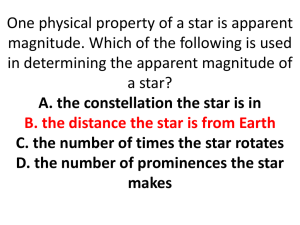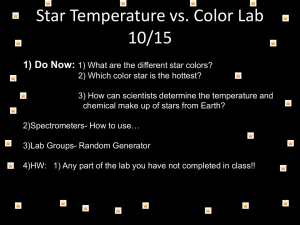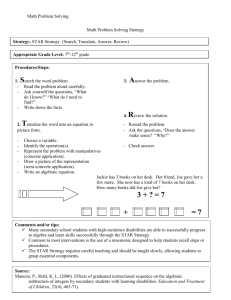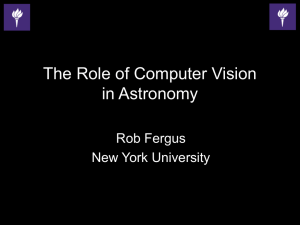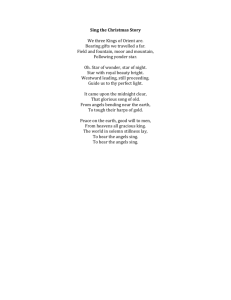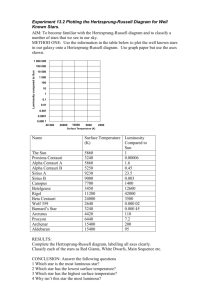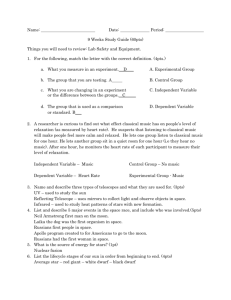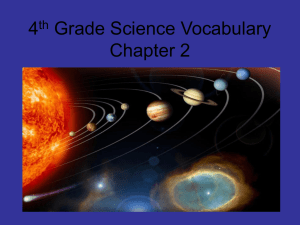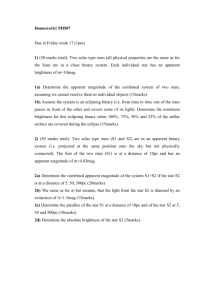H R Diagram Online Activity
advertisement
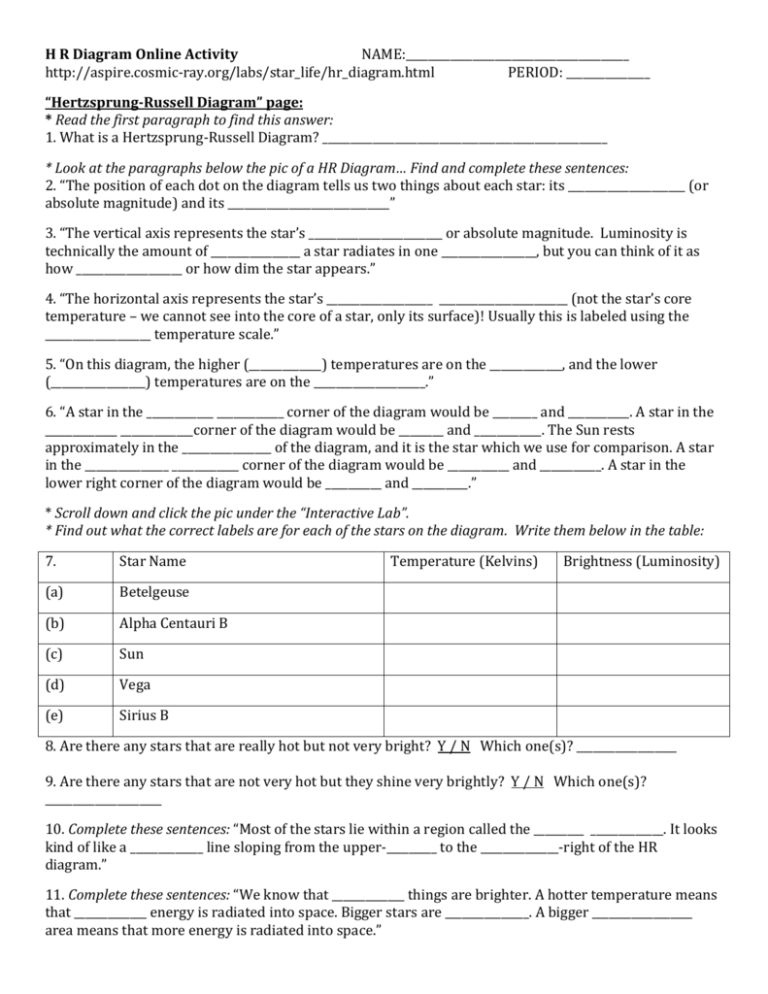
H R Diagram Online Activity NAME:________________________________________ http://aspire.cosmic-ray.org/labs/star_life/hr_diagram.html PERIOD: _______________ “Hertzsprung-Russell Diagram” page: * Read the first paragraph to find this answer: 1. What is a Hertzsprung-Russell Diagram? ___________________________________________________ * Look at the paragraphs below the pic of a HR Diagram… Find and complete these sentences: 2. “The position of each dot on the diagram tells us two things about each star: its _____________________ (or absolute magnitude) and its _____________________________” 3. “The vertical axis represents the star’s ________________________ or absolute magnitude. Luminosity is technically the amount of ________________ a star radiates in one _________________, but you can think of it as how ___________________ or how dim the star appears.” 4. “The horizontal axis represents the star’s ___________________ _______________________ (not the star’s core temperature – we cannot see into the core of a star, only its surface)! Usually this is labeled using the ___________________ temperature scale.” 5. “On this diagram, the higher (_____________) temperatures are on the _____________, and the lower (_________________) temperatures are on the ____________________.” 6. “A star in the ____________ ____________ corner of the diagram would be ________ and ___________. A star in the _____________ _____________corner of the diagram would be ________ and ____________. The Sun rests approximately in the ________________ of the diagram, and it is the star which we use for comparison. A star in the _______________ ____________ corner of the diagram would be ___________ and ___________. A star in the lower right corner of the diagram would be __________ and __________.” * Scroll down and click the pic under the “Interactive Lab”. * Find out what the correct labels are for each of the stars on the diagram. Write them below in the table: 7. Star Name (a) Betelgeuse (b) Alpha Centauri B (c) Sun (d) Vega (e) Sirius B Temperature (Kelvins) Brightness (Luminosity) 8. Are there any stars that are really hot but not very bright? Y / N Which one(s)? __________________ 9. Are there any stars that are not very hot but they shine very brightly? Y / N Which one(s)? _____________________ 10. Complete these sentences: “Most of the stars lie within a region called the _________ _____________. It looks kind of like a _____________ line sloping from the upper-_________ to the ______________-right of the HR diagram.” 11. Complete these sentences: “We know that _____________ things are brighter. A hotter temperature means that _____________ energy is radiated into space. Bigger stars are _______________. A bigger __________________ area means that more energy is radiated into space.” Click the forward arrow at the bottom of the page to go to the page labeled “APPLICATIONS of the H R DIAGRAM”. Do the “Interactive Lab” by clicking the image to begin the activity. Work your way through the lab by reading the information and answering the questions along the way… Print the answers you typed in the final part of the lab, write “LAB QUESTIONS” on it and staple the sheet to this page. Click to the next page titled “Interactive HR Diagrams”. Scroll down the page to the HR diagram under “More HR diagram Fun”. Click the picture for interactive version with questions. Answer the questions and write the correct answers below: 1. _________ 2. (multiple answers) _________, __________, & __________ 3. _________ 4. _________ 5. _________ 6. (put letter and word answer) _________, _________________ 7. _________ 8. (put letter and word answer) _________, _________________ 9. _________ 10. (put letter and word answer) _________, _________________ 11. _________ ( Y / N ) 12. _________ ( Y / N ) 13. ___________________________________________ 14. ___________________________________________ Yeah! You’re done!!! You’re such a “star” student. Turn it in…
